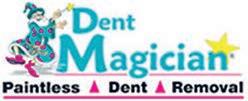
4 minute read
It’s not them, it’s you
It's not them, it's you Successfully navigating change
Rob Clarke
Even though we managed to move quickly back to Level 1 and focus on the recovery of our economy, Auckland's recent outbreak means the level of uncertainty is still enormous.
With the threat of mass redundancies looming for many, it’s a critical time for leaders to focus on simple strategies that enable them to steady the ship during turbulent times. Coaching your team is one such strategy that has the potential to provide the kind of support people need as they cope with change.
How to navigate uncertainty Keeping people focused and motivated when they’re facing uncertainty can be challenging. Gallup research indicates that 70 percent of the variability in employee engagement is due to the leader. This means nearly threequarters of all the impact on your staff is likely caused by you.
Create a coaching culture This then begs the question what can you do in this environment? Developing a coach-like mindset among your leadership can improve the level of staff engagement organisationwide. And developing a coaching culture in your organisation is an effective way to help people navigate change. So how might you get started?
The importance of commitment Whether you’re leading multiple teams within a large organisation, or you work in a small business, the starting point to developing anything in any organisation is the commitment toward making it happen. One way to check that you’re on the right track is to look at your strategic business plan and ask questions like: • To what extent does our plan show we are developing people to be the best they can be? • How are we supporting the team to improve systems, processes, products/services? • What is our plan for developing sustainability across our team? • Is our team clear on what is expected? How do we support, challenge and develop people? • How well do we hold people accountable for the valued results we require?
Nurture a listening culture “Listen with curiosity. The greatest problem with communication is we don’t listen to understand. We listen to reply. When we listen with curiosity, we don’t listen with the intent to reply. We listen for what’s behind the words.” - Roy T. Bennett, The Light in the Heart
The ability to understand and appreciate what you are hearing is a key leadership skill. When you truly listen to your team, you will invariably become more trusted by them. This in turn enables them to more fully realise their skills.
Tips for better listening 1.Pay attention to who’s talking when in meetings and reflect this back to them.
If someone is monopolising the conversation, other people’s viewpoints are probably being unheard. 2.Be curious. Interact with, rather than interrogate people, when asking questions.
This shows you are interested in them as well as the quality of the work, or the results for customers. CEO of Learning Architects
3.Listen for what’s not being said. Often it is what is not said that might be important. 4.Support people to become better at asking the right questions.
Asking the right questions Sharing examples of questions at senior meetings is a great way to encourage your leaders to explore how they might ask better. One great resource for leaders is the book ‘The Coaching Habit’ by Michael Bungay Stanier. He has developed seven powerful questions that if used consistently, will greatly lift your skills at getting the best out of people.
Create ongoing cycles for improvement and accountability Holding people accountable is critical to ensuring that people are coping, and that any kind of change is on track. Three ways to create cycles for improvement and accountability:

1.Establish a rhythm and pattern for people to share back progress. This creates
‘natural accountability’ because it encourages accountability through sharing with one’s peers. Whatever patterns you adopt have to work for your business. Why not build in a quick update from previous actions into meeting agendas as one way to do this? Or perhaps schedule different types of check-ins amongst team members that are documented? 2.Use the words ‘show me’ or ‘show us’ when inquiring into what people have done.
Encourage people to show their work, which makes it more about continuous improvement and less about ‘checking’. 3.Document any agreed actions, and progress made. I encourage you to give coaching a go as a strategy to develop both your own coping skills as well as those of your team — it will help you to navigate tricky waters and empower your people to be the best they can be.

PAINTLESS DENT REMOVAL
Covering Christchurch and North Canterbury. We deliver the best possible dent repair for your vehicle.
We fix small dents without the use of paint or filler, just with the accurate skills of our Certified Technicians and for a fraction of the cost of conventional panel and painting! Paintless Dent Removal is a skill based repair: no machine is used.

Contact Chris now for a no-obligation FREE quotation! CALL 027 274 6163 www.dentmagician.co.nz
Our skilled technicians have many years of professional experience in this industry and aim to get you mobile as soon as possible.

We offer a full range of collision repair services including
Free loan vehicles / Pick up and delivery / Competitive rates Guaranteed workmanship / FREE QUOTES
Shepherd & Kime Ltd: 440 Selwyn Street P. 366 8256 | M. 021 669 308 | E. admin@sandk.co.nz Shepherd & Kime 2008 Ltd: 35 Sheffield Crescent P. 348 4448 | E. sheffield@sandk.co.nz










